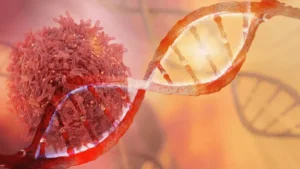
If you want to change your drinking habits, you have to create goals and stick to them. You can also try placing a limit on how many https://ecosoberhouse.com/article/how-alcohol-affects-your-kidneys/ drinks you’ll have during the weekend. Make sure your goals are challenging yet realistic, and check in on them from time to time.
How Can Effective Addiction Treatment Nashville Solutions Help
A therapist can help you learn more about the role you may have played in a codependent relationship and learn healthier patterns. Most treatment methods for substance use disorder involve the family. That means you will likely play a role in your partner’s treatment. Be engaged romantic relationships in recovery in their treatment, and work on healing the relationship. You may be concerned about how others will react or judge you when you share your recovery status. Occasionally, such questions may be asked provocatively, questioning or even testing your commitment to recovery.
Interview with Chantal Jauvin, author “Love Without Martinis.”
They can help identify triggers and patterns that may hinder our recovery, allowing us to make the necessary adjustments and improvements. Relationships are a crucial component of recovery, playing a major role in an individual’s healing and growth. They provide a support system that can significantly impact an individual’s success in maintaining sobriety. Addiction often causes trust problems due to broken promises, lies, and deceit. Trust is vital in relationships, and losing it can be very hurtful. When someone with addiction repeatedly fails to keep their commitments or tells lies to hide their substance use, it damages the trust loved ones have in them.

The Integral Role of Support Groups in Achieving Lasting Sobriety
Sobriety can serve as a powerful example, leading others toward their path of personal growth and positive change. With improved communication skills, individuals can express their needs, thoughts, and concerns more effectively, fostering healthier and more fulfilling relationships. It’s essential for individuals struggling with addiction and their loved ones to seek help and support, both individually and collectively, to address these challenges and work towards healing and recovery.

- Building and nurturing healthy relationships serves as a foundation for overall well-being, stability, and happiness in recovery.
- Recovery from alcohol addiction generally follows the stages of abstinence, withdrawal, repair, and growth.
- There’s a chance that your loved one may not be open to it, depending on your history.
- This final stage is considered relatively stable in comparison to the earlier three stages.
- Although the road to recovery can be long for everyone involved, it’s possible to make amends with those you might’ve hurt or lost in the past due to SUD.
Like AA, Al-Anon is a mutual-help group for the loved ones of those who struggle with alcohol misuse. Attending meetings, which are held all over the world, allow you to share your experience with others and find strength and hope from them and their experiences. Additionally, seeking therapy, either as a family, by yourself, or both, can also help you navigate recovery with your loved one. In addition, ongoing treatment can be helpful for developing coping and communication skills.
There isn’t much guidance on this, and many people in recovery are given the message that their relationships can wait until they’re further along in recovery. That makes the process of relationship recovery pretty abstract for people who aren’t engaged with couple or family therapy. For people who want to focus on relationship recovery outside of those therapies, it’s helpful to build relationship skills broadly to rebuild damaged relationships and also build new healthy connections moving forward. One study of access to general couple therapy was conducted among couples living in neighborhoods with at least 30% of households below the poverty threshold. Studies investigating effective methods to increase access to low-cost treatment options—including those with technological adaptations to increase treatment availability—are warranted.
Role of Partners and Family in AUD Resilience
The study’s results only partially align with non-socially focused memory studies, and should be considered alongside previous research on social attention and other mechanisms of social cognition. In the first social recognition task, participants were asked to view 32 video clips of individuals displaying angry or happy facial expressions. While watching the videos, participants rated their impressions of each individual’s expression, from very hostile to very friendly. Immediately after seeing the videos, they were shown pictures of the same people, as well as previously unseen ones, with neutral expressions.
- 4 Essential Skills to stay focused on yourself and NOT their addiction
- Most of our current knowledge, however, has come from studies of relatively small clinical samples or from treatment studies.
- For example, up to half of people with substance use disorder have also experienced symptoms of post-traumatic stress disorder (PTSD).
- The transition stage can be a complex ebb and flow during which the person using alcohol adapts to not drinking, and the family adjusts to the transition of living through the end of the drinking into the beginning of abstinence.
- Couples in which a partner abuses drugs or alcohol have a very difficult time getting out of this downward spiral; fortunately, we also know of proven ways to help these relationships and, in the process, help the substance abuser recover.
Functional alcoholics maintain their life despite their misuse of alcohol. It can take years for their drinking to affect relationships, careers, and other aspects of their life. The 12-step program has been widely recognized as a valuable tool for repairing and rebuilding relationships in the context of recovery. These steps provide a framework for self-reflection, personal growth, and making amends to those we may have harmed during active addiction. Furthermore, relationships act as a mirror, reflecting our progress and accountability. Loved ones can offer insight, hold us accountable to our goals, and provide perspective on our actions and behaviors.
- AAC is recognized as a leading provider of alcohol detox and rehab.
- This is then followed by a review of the array of interventions influenced by cognitive behavioral therapy (CBT) and family systems models.
- Trust is vital in relationships, and losing it can be very hurtful.
Allure Detox: Comprehensive Guide to Drug Detox in West Palm Beach
A strong foundation of self-care is critical to supporting healthier relationships under normal circumstances, never mind when there is complexity such as addiction and recovery thrown into the mix. Additionally, the 12-step program emphasizes the importance of sponsorship and support from others who have gone through similar experiences. Through regular meetings and fellowship, individuals in recovery can develop new, healthy relationships based on mutual understanding, empathy, and shared goals. Most people see how their relationships impact their quality of life, but sometimes this gets muddied when addiction is part of the picture.


